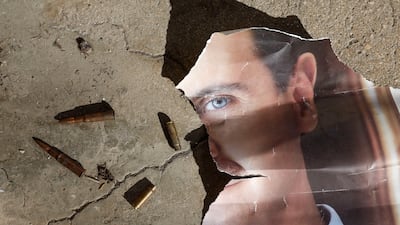“I often felt rage about the future that lay ahead of my beloved cousins. Like many other highly educated young Syrians, they had few opportunities and many were conscripted into the military. Even at a young age, I could see the crushing impact the dictatorship had on young hopes and dreams.”
This reflection from one Syrian writing recently in The National powerfully expresses the frustration and helplessness felt by millions of people who lived under the Assad dynasty. Too many people, young and old alike, led lives that were constrained by an inequitable state that looked as if it would endure forever. Yet, exactly a month ago, Bashar Al Assad’s government fell and the country entered a new – if uncertain – era.
As Syrians begin the important work of building new institutions, the nation is renewing its relationships with regional neighbours and other foreign powers. This week, Syrian Foreign Minister Asaad Al Shibani made his first trip to the UAE after taking office, having also visited Saudi Arabia and Qatar. Another important step was taken yesterday when a Syrian Airlines plane with 145 passengers bound for Sharjah became the first international commercial flight to leave from Damascus since December 8.
Such steps are a major change from Syria’s decades of Baath party rule. Indeed, the system that crumbled so spectacularly last month offers important lessons about leadership, governance and the requirement to offer citizens a brighter future.
Before the 2011 civil war, the state maintained a repressive form of stability built on violent foundations. Syria’s dynastic system was defined by self-preservation and corruption. It excluded most of its citizens from decision-making and embraced a faux-revolutionary resistance culture that was strong on rhetoric but offered few tangible prospects or opportunities to the vast majority. It was a state stuck in time.
The results of this poor leadership and ossified state structure could be seen in the dire straits of the Syrian economy even before the uprising and civil war began. According to research from the Barcelona Centre for International Affairs, oil production more than halved between 2002 and 2011, and the government’s target for agricultural self-sufficiency proved unattainable. The World Bank found that whatever pre-war economic growth there was “did not translate into broad-based economic and political inclusion and further transparency and civil liberties”.
A state constructed on such deficient leadership cannot last forever, and it is unsurprising that in the end very few Syrians were willing to fight and die in its defence. Now that this edifice has collapsed, an opportunity has emerged to offer the Syrian people the realistic prospect that the future will be better than the past.
The optimism that greeted Mr Al Assad’s departure is a powerful force and was prominently on display during recent new year’s celebrations across the country. Syrians keenly understand the fragile and unpredictable nature of the political transition that is taking place. If they are given reason to believe that it will eventually lead to security, more jobs, investment, freedom of movement and many of the other things other countries take for granted, then they are more likely to give the new government and institutions time to bed in.


